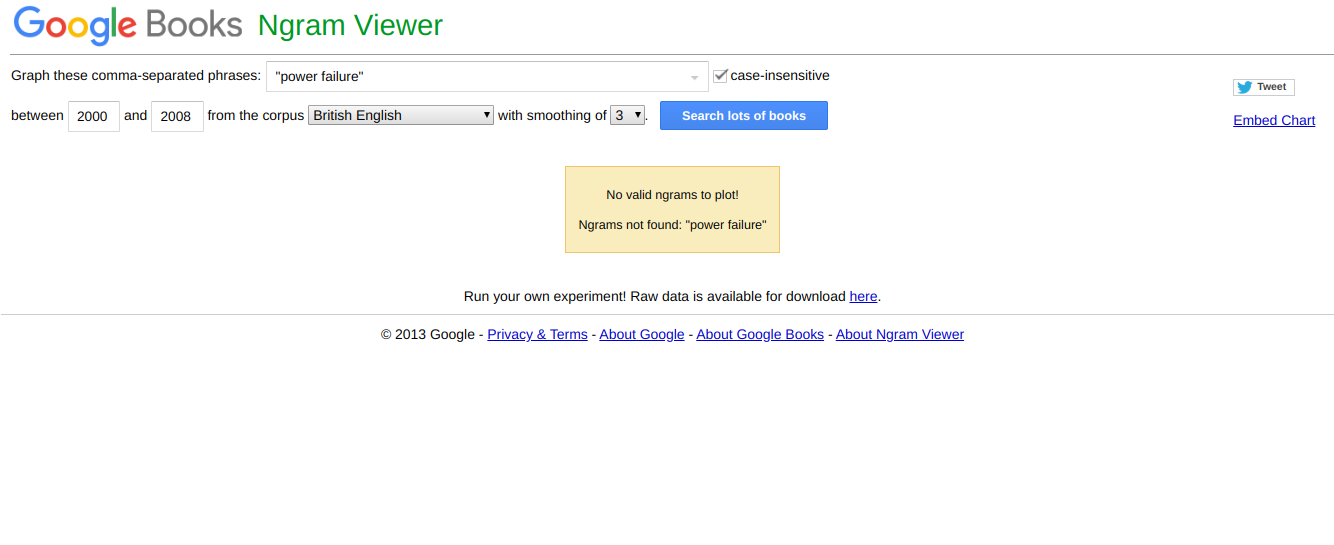Which of the following is more common in British English vs American English?
- Power cut
- Power outage
- Power failure
- Blackout
Which of the following is more common in British English vs American English?
"Power cut" is certainly the most common in the UK, as seen in the comments. Lexico Oxford Dictionaries gives the phrase the "British" tag.
On Google News, almost all of the news is UK stories, and it's the same story ;-) for power outage in the US.
As for blackout being used as a term for a mass outage in the UK, the fairly recent mass power cut that affected the nation is indeed referred to as a blackout more often than power cut.
"Power outage" is often used to refer to a more local failure, whereas "Power failure" is almost never heard, clearly shown on NGrams:
"Blackout" is also seemingly used to mean a wide-scale outage in the US, as shown in News as well.
"Power failure" doesn't seem that popular either, and as it's a UK term, "power cut" is close to nonexistent. (where "cut" is used, it's usually published by a UK news site).
I heard "outage" being used in a film set in 1940s England - which led me here. I never heard the term "outage" before this millennium. I have only used and heard "power cut" before, whether the cause was accidental or planned.
Years later, but still (I think) relevant. I'm increasingly seeing "outage" in UK news reports, but to me it's still an Americanism. One reason I think so is that only Americans say power is "out" (Brits would say it is "off"). When I stayed in San Francisco in 1979 I remember someone saying "BART is out", meaning that the local Bay Area Rapid Transit (BART) system was not running for some reason (I think it was a strike). The whole phrase "BART is out" struck me as one that few Brits could even begin to understand. And so "outage" would also have been quite meaningless to Brits - at least back then.
The Google NGrams corpus search on all four, for UK and US separately are shown here:
Blackout seems to be by far the most popular in both the UK and US, then 'power failure'. 'Power outage' and 'power cut' both seem to be rare in the US.